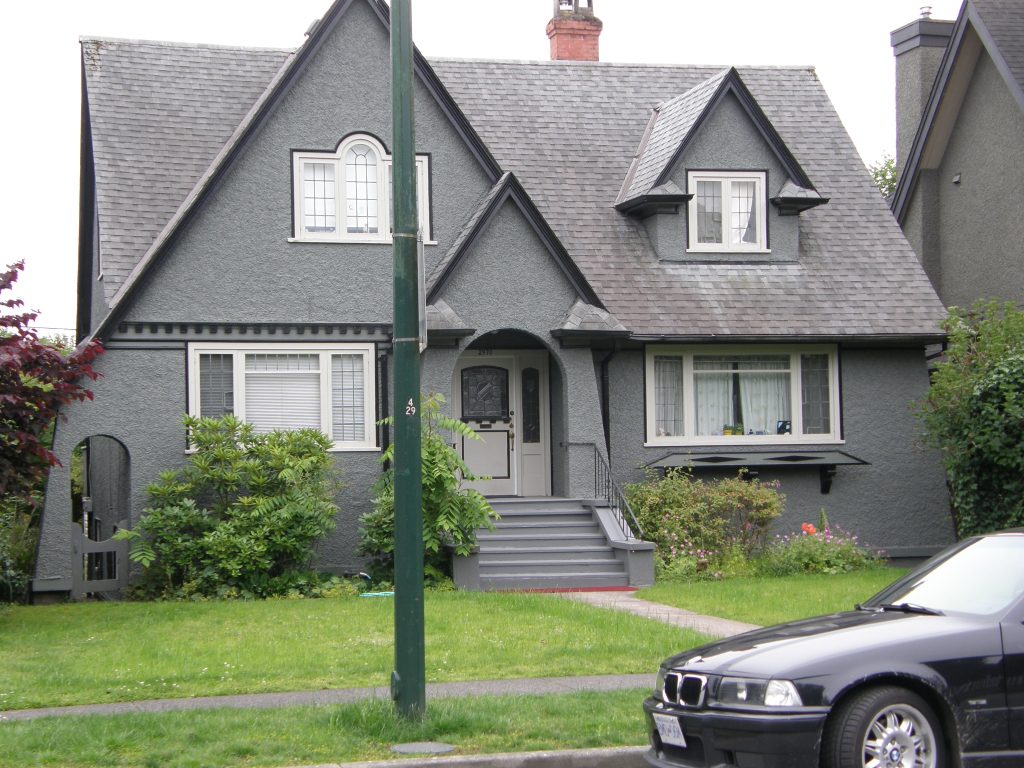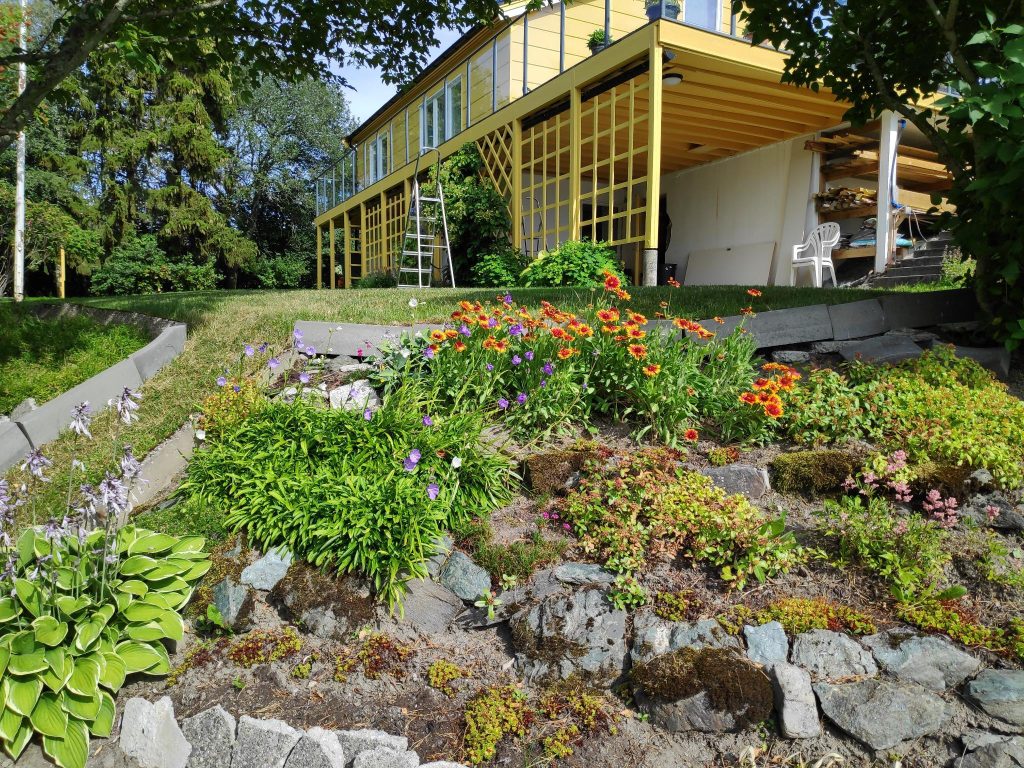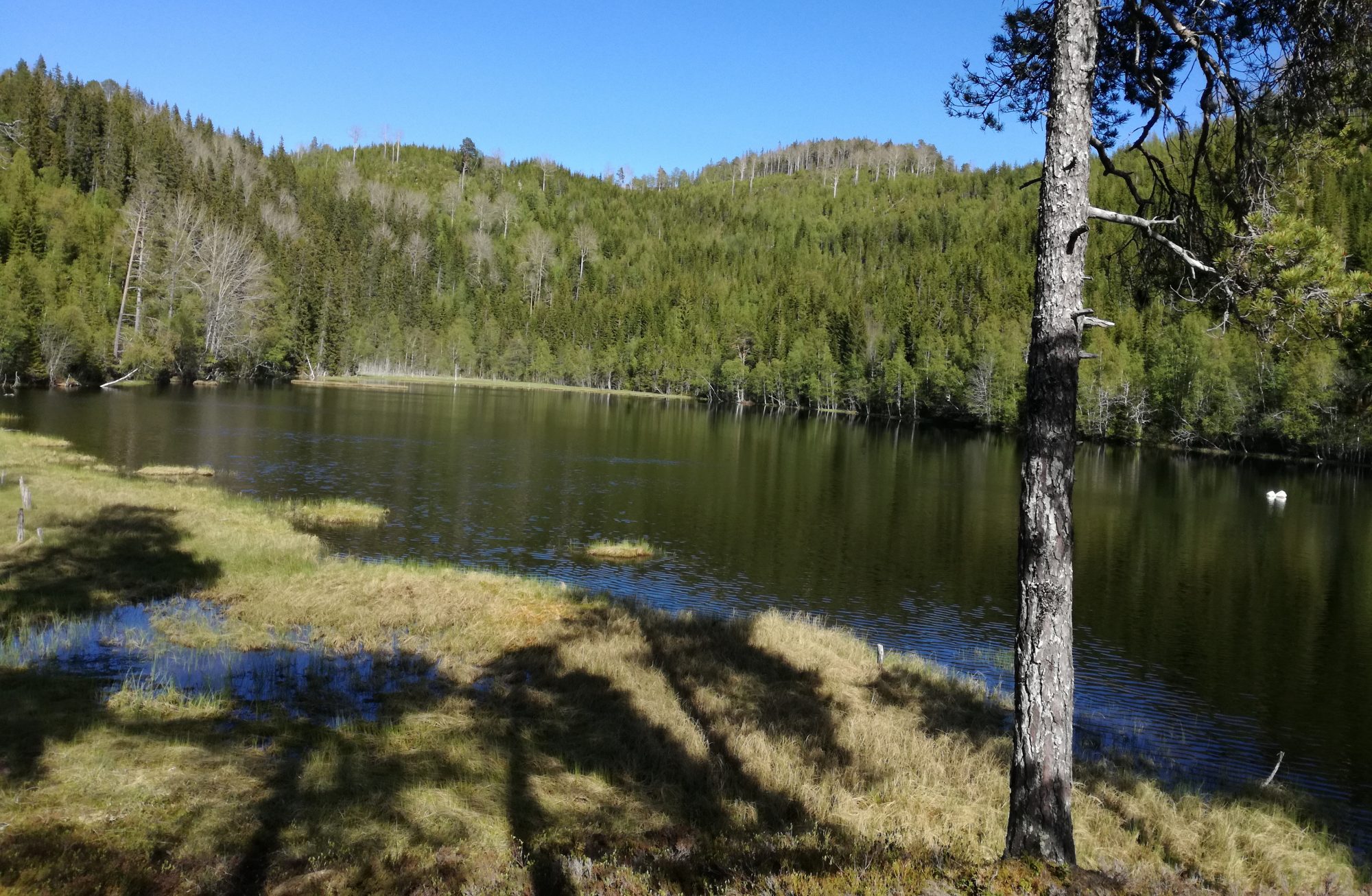When looking at several generations in my family, I see the same things happening in more than one generation. For example, my mother was 35 when she had her first child, my older sister was 34 when she had her first (and only) child, and I was 33 when I had my first child. So we are a family that has our children relatively late and thus other things connected to this happen when we are more mature.
Let’s look at my parents first. My mother was born in 1907 and my father in 1911. They got married in 1939, moved from one country to another in 1946 and bought their first (and only) house in 1947. So my mother was 40 years old and my father 36 when they got their first house. They already had one child and the second child was born in 1949, shortly after they had bought the house. So for about 9 years my parents lived in rented accommodation before they were able to settle enough in one place to purchase a house.

My parents-in-law were born in 1906 and 1916. They got married in 1942 and adopted two children, the oldest being born in 1948. They bought their first house in 1951 in New Westminster. So they were 45 and 35 years old when they bought their first house.
My husband was born in 1948 and I was born in 1949. We got married in 1978, moved from one country to another in 1980, had our first child in 1983, our second child in 1989 and bought our first (and only, so far) house in 1991. So we were 43 and 42 when we purchased our house. We are still living in this house 30 years later.
Between 1978 and 1991, about 13 years, we lived in a variety of rented accommodation, ranging from apartments (Port Coquitlam and New Westminster), to primitive housing (Aukra and Inderøy) to basement suites (Molde), to student housing (Molde and Bodø) before we were able to purchase our own house in Inderøy.

Why did we choose this particular house and this particular time to purchase a house? There were several factors involved, including opportunity and financing.
During our first years in Norway we had very little income and had to find very inexpensive housing to keep a roof over our heads. We rented an inexpensive, older house, with only cold water and no indoor toilet facilities for two years. The arrival of our first child made a move to a basement suite in Molde necessary. We got an inexpensive basement suite based on looking after the owners’ dog while they were out of the country. When we shifted from student life to working life (with income!) we moved to Bodø and got student housing through my husband’s employer. Slowly we acquired our own furniture having progressed from rented, furnished housing to having to have our own furniture. The move to Inderøy eventually resulted in a move to a house when we were expecting our second child. When the owner of the house died, we bought the house, an easy solution to the problem of moving again.
However, being able to purchase the house that we did was also dependent on us being able to finance the purchase. My father had died in 1989 and so I inherited enough money to be able to have a down payment on the house which we purchased at the end of 1990 and became officially owners of the first of January, 1991.
As I look at these three couples, who all purchased their houses at approximately 40 years of age, I see some similarities.
First of all, is the desire to own a house. When I was in my early 20s, I wanted to rent accommodation so that it was easy to move whenever I wanted to. I did not want to become settled in one place. The time was not right for me. Often owning a house is also connected to being part of a couple. This need to settle is often connected to having children and feeling the need for more stability in one’s life. It was after I had my first child that the need to own a house was something that I felt.
Second, is the ability to finance the purchase of a house. A house usually costs much more than a person or a couple can afford to pay off at once and a loan must be taken up to spread the cost of the house over many years, often 20 or 30 years. Being able to go to a bank and ask for a mortgage is dependent on having a steady job with an income that is high enough to pay for the mortgage on a monthly basis. Here in Norway, usually both people in a couple will need to be working to afford to buy a house, though this will depend on whether you live in a large city (where the housing is very expensive) or a small town or village (where housing will be more affordable).
Why did I want to write these thoughts? Both of my children are now in their 30s. Neither of them have children nor own their own home. I wanted to share with them some of my thoughts about owning one’s own house.

Learning from previous generations. Regardless of what actually happens because of circumstances, it is my intention to retain our house until, at some point, our children are given an opportunity to take it over. This might happen before or after we are dead. If before, there will probably be an enforcable clause in any contract allowing us to live in the house while we are alive.
A major problem with the generation before us, is that they sold their houses on a rising market. This meant that there was relatively little to inherit in terms of the cost of purchasing a house in Greater Vancouver.
What concerns me in the Bay area is this same rising market, but this time that housing prices are unsustainable. So that people assume a massive debt, while employers suddenly realize that keeping staff hostage in San Francisco or the Peninsula is not profitable for them.